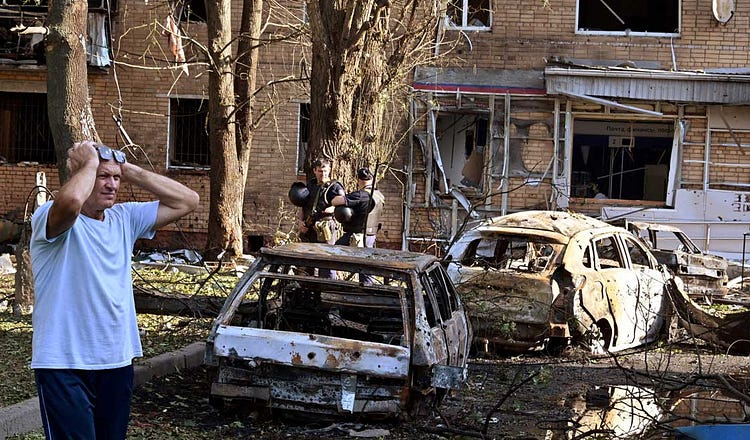H.R. McMaster: Ukraine is “Seizing and Retaining the Initiative”

The remnants of a Ukrainian missile strike in Kursk, Russia, reported by local Russian authorities on August 11, 2024. (Anatoliy Zhdanov via Reuters)
Ukraine claims their forces now control 386 square miles of Russian territory. H.R. McMaster argues that this incursion could lead to peace.
7
There hasn’t been much good news out of Ukraine lately. This summer, Russia had been making steady advances in the east and has hit civilian sites, including a children’s hospital, in major cities. Combine that with Ukraine’s depleted forces, and a feeling of grim inevitability has hung over the Ukraine-Russia war in recent months. But last week, Ukrain…
Continue Reading The Free Press
To support our journalism, and unlock all of our investigative stories and provocative commentary about the world as it actually is, subscribe below.
$8.33/month
Billed as $100 yearly
$10/month
Billed as $10 monthly
Already have an account?
Sign In


